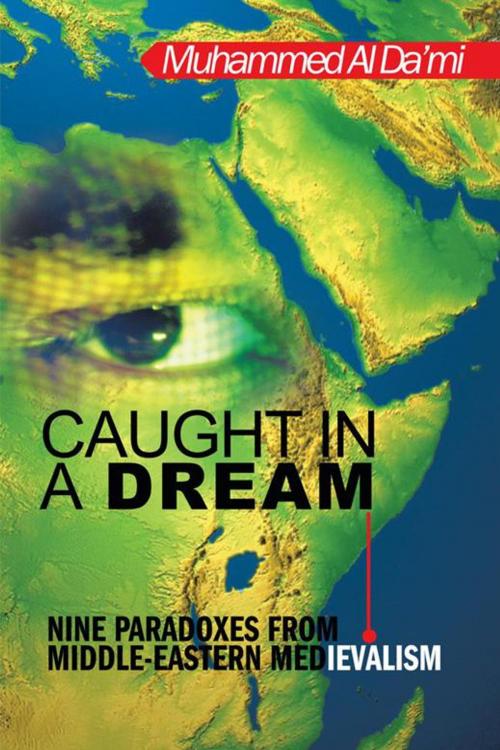Caught in a Dream
Nine Paradoxes from Middle-Eastern Medievalism
Nonfiction, Social & Cultural Studies, Social Science, Cultural Studies, Ethnic Studies, Political Science, History| Author: | Muhammed Al Da’mi | ISBN: | 9781481739375 |
| Publisher: | AuthorHouse | Publication: | April 30, 2013 |
| Imprint: | AuthorHouse | Language: | English |
| Author: | Muhammed Al Da’mi |
| ISBN: | 9781481739375 |
| Publisher: | AuthorHouse |
| Publication: | April 30, 2013 |
| Imprint: | AuthorHouse |
| Language: | English |
Caught in a Dream is based on the hypothesis that the Middle East is currently a problematic region in so far as world peace and regional stability are in question. It is problematic intrinsically because it is hooked on an ancestral dream on both the governmental and popular levels. Middle-Eastern medievalism is instrumental for the survival of undemocratic forms of government; and it guaranties a backward public opinion that complements the magic circle of the illusive vision through the demagoguery of the prevailing radical Islamic groups which are now fuelled and maintained by the petrodollar the industrial world provides in return for oil. To verify the above hypothesis, Professor Al Dami examines nine demonstrative paradoxes which crystallize the obsessive and blinding medievalism of this `region of paradox through discussions of the geographically loose and derogatory denomination of the `Middle East, the durable residual impact of Ottoman legacy with its issues, the failure of constant and accumulative progress due to intermittent governmental change, the incongruity between state authority and the cultural elite, the toleration of despotism as a result of resilient medieval relationships and social structures, the futility of progressive change attempted by oppositions which carry identical reactionary values, the dilemma of the educational systems, the American involvement in Iraq and the region which stimulated cultural responses of revealing meaning. An Essay on Mesopotamianism demonstrates the continuity of the Western approaches to Iraq as a model case of regional significance.
Caught in a Dream is based on the hypothesis that the Middle East is currently a problematic region in so far as world peace and regional stability are in question. It is problematic intrinsically because it is hooked on an ancestral dream on both the governmental and popular levels. Middle-Eastern medievalism is instrumental for the survival of undemocratic forms of government; and it guaranties a backward public opinion that complements the magic circle of the illusive vision through the demagoguery of the prevailing radical Islamic groups which are now fuelled and maintained by the petrodollar the industrial world provides in return for oil. To verify the above hypothesis, Professor Al Dami examines nine demonstrative paradoxes which crystallize the obsessive and blinding medievalism of this `region of paradox through discussions of the geographically loose and derogatory denomination of the `Middle East, the durable residual impact of Ottoman legacy with its issues, the failure of constant and accumulative progress due to intermittent governmental change, the incongruity between state authority and the cultural elite, the toleration of despotism as a result of resilient medieval relationships and social structures, the futility of progressive change attempted by oppositions which carry identical reactionary values, the dilemma of the educational systems, the American involvement in Iraq and the region which stimulated cultural responses of revealing meaning. An Essay on Mesopotamianism demonstrates the continuity of the Western approaches to Iraq as a model case of regional significance.















